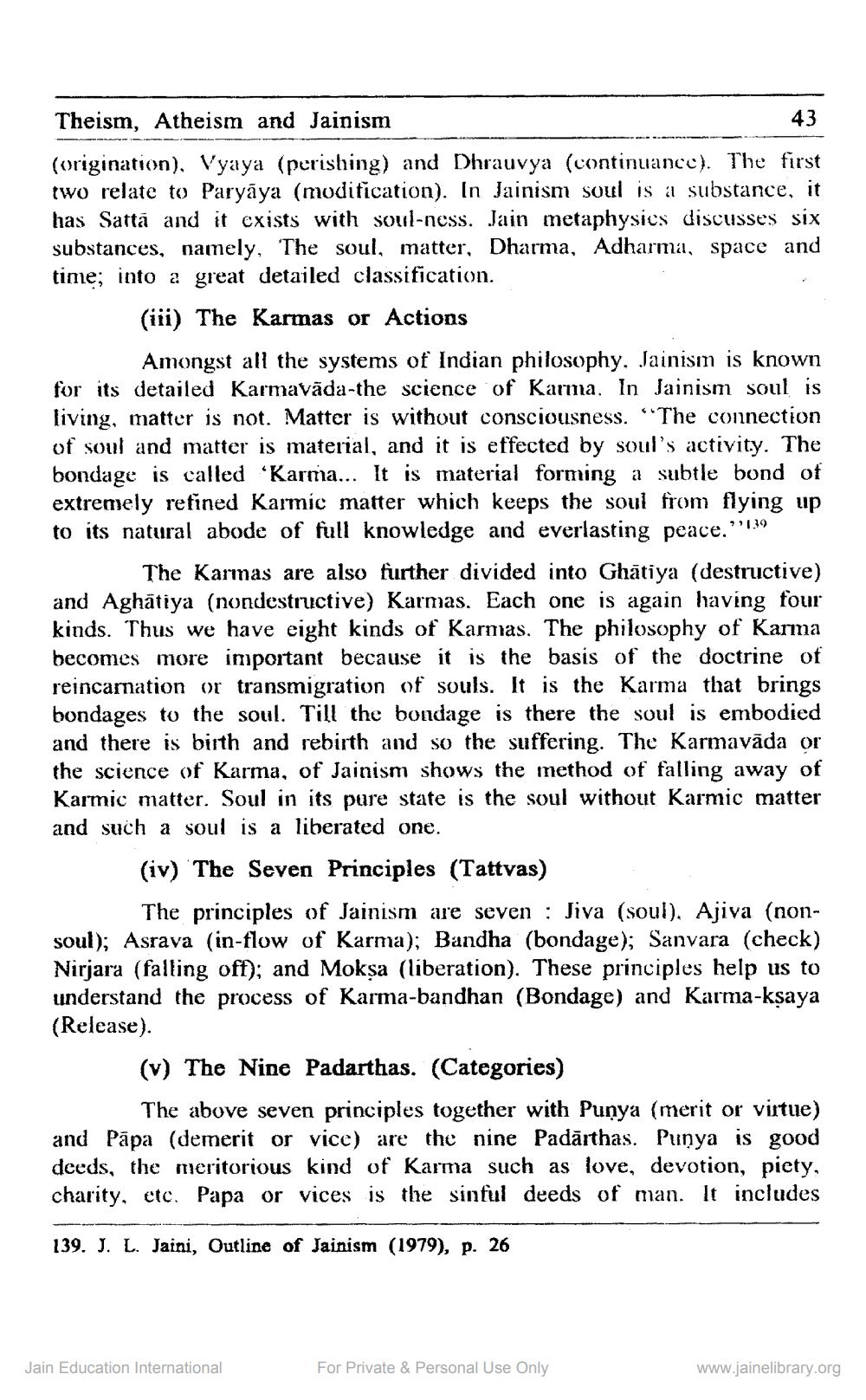________________
Theism, Atheism and Jainism
43 (origination), Vyaya (perishing) and Dhrauvya (continuance). The first two relate to Paryāya (modification). In Jainism soul is a substance, it has Sattā and it cxists with soul-ness. Jain metaphysics discusses six substances, namely, 'The soul, matter, Dharma, Adharma, space and time; into a great detailed classification.
(iii) The Karmas or Actions
Amongst all the systems of Indian philosophy. Jainism is known for its detailed Karmavāda-the science of Karma. In Jainism soul is living, matter is not. Matter is without consciousness. “The connection of soul and matter is material, and it is effected by soul's activity. The bondage is called “Karma... It is material forming a subtle bond of extremely refined Karmic matter which keeps the soul from flying up to its natural abode of full knowledge and everlasting peace.”'\.39
The Karmas are also further divided into Ghātiya (destructive) and Aghātiya (nondestructive) Karmas. Each one is again having four kinds. Thus we have eight kinds of Karmas. The philosophy of Karma becomes more important because it is the basis of the doctrine of reincarnation or transmigration of souls. It is the Karma that brings bondages to the soul. Till the bondage is there the soul is embodied and there is birth and rebirth and so the suffering. The Karmavāda or the science of Karma, of Jainism shows the method of falling away of Karmic matter. Soul in its pure state is the soul without Karmic matter and such a soul is a liberated one.
(iv) The Seven Principles (Tattvas)
The principles of Jainism are seven : Jiva (soul), Ajiva (nonsoul); Asrava (in-flow of Karma); Bandha (bondage); Sanvara (check) Nirjara (falling off); and Moksa (liberation). These principles help us to understand the process of Karma-bandhan (Bondage) and Karma-ksaya (Release).
(v) The Nine Padarthas. (Categories)
The above seven principles together with Punya (merit or virtue) and Pāpa (demerit or vice) are the nine Padārthas. Punya is good deeds, the meritorious kind of Karma such as love, devotion, piety, charity, ctc. Papa or vices is the sinful deeds of man. It includes
139. J. L. Jaini, Outline of Jainism
(1979), p. 26
Jain Education International
For Private & Personal Use Only
www.jainelibrary.org




